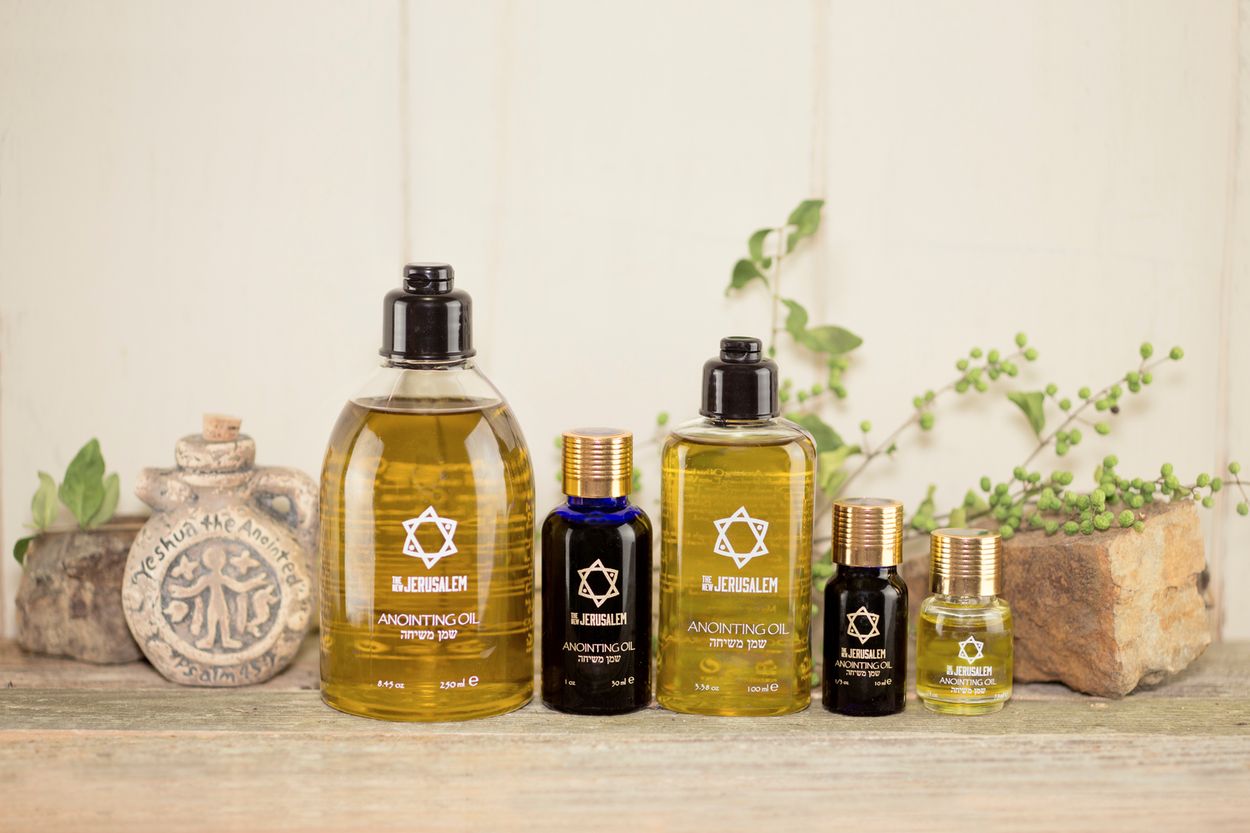
Holy Anointing Oil has a rich history and deep spiritual significance. Used in various religious ceremonies, this sacred oil symbolizes purification, healing, and consecration. But what exactly is Holy Anointing Oil? It’s a blend of specific ingredients mentioned in the Bible, including myrrh, cinnamon, calamus, cassia, and olive oil. Each component carries its own symbolic meaning and purpose. For centuries, this oil has been a vital part of rituals in Judaism and Christianity. Why is it so important? Because it represents the presence of the divine and is believed to bring blessings and protection. Whether you're curious about its origins or its uses, understanding Holy Anointing Oil can deepen your appreciation for its role in spiritual practices.
What is Holy Anointing Oil?
Holy anointing oil has been used for centuries in various religious ceremonies. It holds significant spiritual and cultural importance.
-
Biblical Origins: Holy anointing oil is first mentioned in the Bible, specifically in the Book of Exodus. It was used to consecrate priests and sacred objects.
-
Ingredients: The original recipe includes myrrh, cinnamon, calamus, cassia, and olive oil. Each ingredient has symbolic meanings and health benefits.
-
Symbolism: Anointing oil symbolizes the Holy Spirit's presence and God's blessings. It is often used in rituals to signify purification and sanctification.
Uses in Religious Practices
Holy anointing oil is not just a relic of the past. It continues to play a vital role in modern religious practices.
-
Consecration: Used to consecrate altars, churches, and other sacred spaces. It marks these places as holy and dedicated to God.
-
Healing: Many believe in the oil's healing properties. It is often used in prayers for the sick, symbolizing God's power to heal.
-
Baptism: Some Christian denominations use anointing oil during baptism to signify the Holy Spirit's presence.
Historical Significance
The history of holy anointing oil is rich and varied, spanning different cultures and eras.
-
Ancient Egypt: Egyptians used similar oils for embalming and religious rituals, indicating its long-standing spiritual significance.
-
Kings and Prophets: In ancient Israel, kings and prophets were anointed with oil as a sign of their divine appointment.
-
Medieval Europe: During the Middle Ages, anointing oil was used in coronation ceremonies for kings and queens.
Modern-Day Applications
Holy anointing oil isn't just for religious ceremonies. It has found its way into various aspects of modern life.
-
Aromatherapy: The ingredients in holy anointing oil are often used in aromatherapy for their calming and healing properties.
-
Alternative Medicine: Some people use it in alternative medicine practices, believing in its holistic benefits.
-
Personal Use: Many individuals use anointing oil in their daily prayers and meditation routines for spiritual upliftment.
Cultural Impact
The influence of holy anointing oil extends beyond religious boundaries, impacting various cultures and traditions.
-
Art and Literature: Holy anointing oil has been depicted in numerous works of art and literature, symbolizing purity and divine favor.
-
Music: Many hymns and spiritual songs reference anointing oil, highlighting its importance in worship.
-
Festivals: In some cultures, anointing oil is used during festivals and special occasions to bless participants and spaces.
Scientific Perspective
While primarily a spiritual tool, holy anointing oil has also been studied for its scientific properties.
-
Antimicrobial Properties: Some ingredients, like myrrh and cinnamon, have antimicrobial properties, making the oil useful for cleansing.
-
Anti-inflammatory: The oil's components are known for their anti-inflammatory effects, which can aid in physical healing.
-
Aromatherapy Benefits: The scent of the oil can reduce stress and anxiety, contributing to overall well-being.
Controversies and Misconceptions
Despite its widespread use, holy anointing oil is not without controversies and misconceptions.
-
Commercialization: Some criticize the commercialization of holy anointing oil, arguing it diminishes its sacred value.
-
Misuse: There are instances where the oil is misused for purposes not aligned with its spiritual intent, leading to debates within religious communities.
The Essence of Holy Anointing Oil
Holy anointing oil holds deep spiritual significance across various religions. Used in ceremonies and rituals, it symbolizes purity, healing, and consecration. The blend of myrrh, cinnamon, calamus, cassia, and olive oil creates a unique fragrance that has been cherished for centuries.
Understanding its historical and cultural importance can deepen one's appreciation for its role in faith practices. Whether used in ancient times or modern worship, this sacred oil continues to be a powerful symbol of divine presence and blessing.
By learning about its origins, ingredients, and uses, we gain insight into a tradition that has stood the test of time. Holy anointing oil remains a testament to the enduring power of faith and ritual in connecting believers with the divine.
Was this page helpful?
Our commitment to delivering trustworthy and engaging content is at the heart of what we do. Each fact on our site is contributed by real users like you, bringing a wealth of diverse insights and information. To ensure the highest standards of accuracy and reliability, our dedicated editors meticulously review each submission. This process guarantees that the facts we share are not only fascinating but also credible. Trust in our commitment to quality and authenticity as you explore and learn with us.


